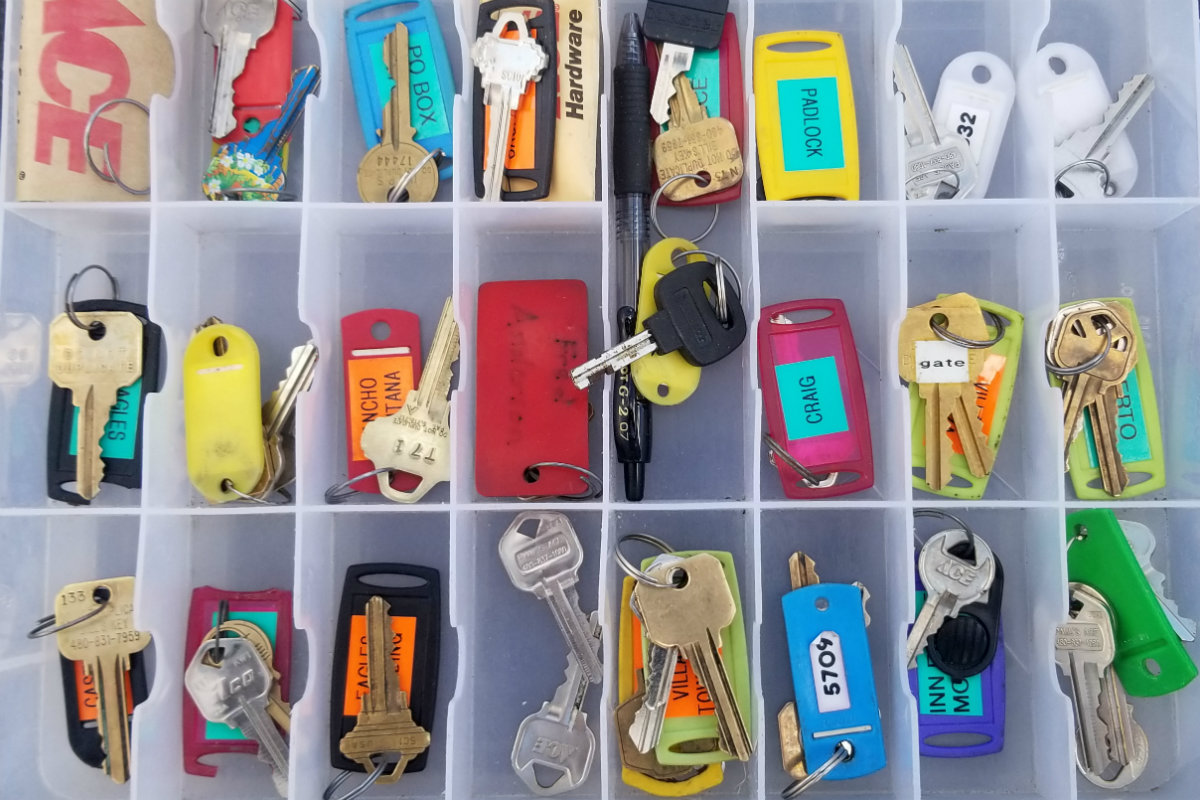It’s 2019, and we still don’t have biometric padlocks that allow access with a quick scan of your eye or fingerprint. Until such time, you’ll be dealing with keys or combinations to get in the backyard.
Keys are pesky, and combination locks are cumbersome — and the mishandling of them can be costly.
Ray Arouesty, senior vice president of HUB International, the official insurance provider to the Independent Pool and Spa Service Association, tells of a pool technician who lost the pass key for a commercial property. The key provided access to not only the pool, but a number of other rooms. So when the key went amiss, the property manager rekeyed all the locks at $150 a pop.
Who paid for it? The pool professional, of course. Fortunately, lost keys were covered under the insurance policy. The total claim was approximately $1,600.
“The service tech was pretty pleased he didn’t have to pay for it out of pocket,” Arouesty says.
Some mistakes are even costlier — tragic, even. A pool pro went back to his truck to retrieve a part. He didn’t lock the gate. He’d be right back, after all. While the gate was momentarily unlocked, a teenage boy slipped past and was found in the pool unresponsive. Arouesty is representing the professional in a wrongful death case.
So until technology renders the key obsolete and eliminates human error, you’ll have to be vigilant. That means getting your customers to first hand over keys — if they’re willing; not all are — making copies, storing, organizing and securing them and, most importantly, locking the gate.
Here, professionals offer their best key strategies.
Key keepers
You’ll need to keep all those keys in something, and there are a couple of options to consider.
The binder: Handsome vinyl-bound binders are favored by property managers and car rental operations and work pretty well for service professionals, too. They can hold dozens of keys, which can be organized with labels and categorized by color-coded tabs to correspond to routes. Keys clip on and off secure tabs. The binder zips up for portability and travels well on the road.
Lockbox: The lockbox provides a secure location to keep a key onsite. To retrieve a key, simply punch in the pass code or turn the combination dial. While common at commercial properties, lockboxes are also making their way in the residential sector. With the homeowner’s permission, techs are installing these units on or near the side gate. Some models can be shackled to a fence post.
Hidden onsite: Some pros arrange with the homeowner to stash the key under a rock, welcome mat or other discreet location. This might not be the most secure option, but it’s convenient. Just be sure employees know where to find it.
“We have a customer who leaves a key hanging from their grill outside the fence. We have that location logged in the customer notes so the techs see it every visit when they look at their app,” says Jerry Jurden, president and CEO of Champion Pool Service in Lavon, Texas.
Thread organizer: Who would have thought something among your mom’s arsenal of sewing supplies would have a place in your truck? Turns out those plastic cases used to store spools of thread make for a pretty nifty key case. Credit Mike Ryno for discovering this solution.
The owner of Alliance Aquatics in Fountain Hills, Ariz. is not a fan of the binder. He found that the clips weren’t always secure and the keys would come loose. So he looked for alternatives. The double-sided spool folder (above) holds about four dozen keys, each of which are labeled and include a pass code for access to commercial facilities, and are organized by route. It has more storage capacity than most binders.
“This is larger because I have so many commercial accounts,” Ryno says.
Making the system even more efficient is the occasional co-pilot who serves as the designated “key whisperer.” This person has the heavy responsibility of retrieving the right key and returning it back to its designated compartment.
Lock options
How to keep the gates shackled? There are several options, each with pros and cons.
Combination lock: “Keys? What keys?” asks Aaron Stewart, owner of Stewart Pools in Fort Worth, Texas. That’s the beauty of the simple, yet hard-to-crack combination dial. That way, if a tech is out sick, Stewart isn’t trying to track down a key to pass on to the fill-in. With 290 accounts, that’d be a lot of keys to manage.
Stewart Pools sells the locks for $19.95. If customers object, they’ll have to unlock their gates on the day of service. If a tech arrives and finds it locked, the customer is still billed for the visit. This is spelled out in the service agreement.
This is also how Jurden addresses the issue of missed appointments because of a locked gate. The customer faces a fee of $25 if they want to reschedule service during the same week. Otherwise, they’re billed as though the pool was serviced.
“We usually don’t charge a fee on the first offense,” Jurden says.
Techs, of course, need combination codes. Stewart makes them available in a database that employees can access with smartphones. Stewart assures customers the database is — like their gates — secure.
Universal lock: One key rules them all. Instead of conglomerate keys dangling from a ring, techs hit the road with one small key. “My guys carry one key for 95% of the pools they do now,” says Tom Sheehy, owner of Crystal Clear Custom Pools. He prefers the one-key system because it is quicker than fumbling with combination dials.
Homeowners are not charged for the lock — of course, they get a copy of the key — and techs try to collect them upon closing the account.
This has alleviated a lot of headaches.
Door lock: In parts of the Southeast, particularly Florida, pools are screened to keep out bugs, debris and the occasional gator. Doors on lanai patios commonly do not have keyed locks. Homeowners can lock and unlock them from the inside with a push-button on the doorknob. The problem is they forget to unlock the door on service days.
So Kirk Bradley, owner of On-Site Pool Service, offers to change them out with a keyed lock. The kit from a local hardware store runs about $30, but it saves a lot of aggravation. The alternative is to risk missing appointments. “I tell them, ‘I don’t want to be dependent on you to unlock it,’” he says.
Keys are kept on rings in trucks. Or they can be stashed on the property, typically in the timer box at the equipment pad.




